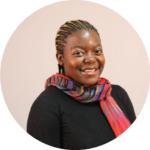Africa Day is a celebration of African diversity and success and an opportunity to highlight the cultural and economic potential that exists on the African continent.
Africa covers 6% of the earth’s surface and is home to more than 1.3 billion of the world’s population and because of its vastness, there are many myths, definitions and claims about what “Africanness” is, and what it means to be African.
Novelist Chimamanda Adichie has highlighted the danger of a single story, explaining that lives and cultures are composed of many overlapping stories and identities
“If we hear only a single story about another person or country, we risk a critical misunderstanding,” she said.
So, what is “Africanness” and how do we build an inclusive African culture and society in ways that avoid reinforcing damaging narratives about African identities?
In much of Africa, LGBTQI+ identities are pegged as “un-African” with the marginalised community demonised and stigmatised by societies and states. As of 2020, same-sex relations were criminalised in 32 countries in Africa.
According to a global review by the International Lesbian, Gay, Bisexual, Trans and Intersex Association (ILGA World), in four countries, the legislation imposed the death penalty for sexual relations between people of the same sex. These countries were Nigeria, Mauritania, Sudan, and Somalia.
Queerness in Africa has been demonised and stigmatised which not only presents a human rights issue but a challenge to the inclusion and understanding of queer identities in African society.
Reflecting on the harmful stereotype of queerness being un-African, Iranti acting co-director Jade Jacobs said queerness has a place and history in Africa.
“Across the continent in history, there have been many cultures and traditions where there’s been the existence of people who embody maybe not homosexuality the same, but they do embody complex relationships with people either of the same sex or perform gender in ways that are different to what is usually considered to be socially understood today,” Jacobs said.
Together with Gender Dynamix, Iranti successfully bid to host the ILGA World Conference, one of the largest global gatherings of LGBTQI+ changemakers in Cape Town in 2024, a victory that Jacobs believes not only puts African people on the map but encourages African governments to do more to empower queer communities.
“I think it presents an opportunity to challenge norms and challenge the way that queer people currently exist in South Africa, but also highlighting putting people in Africa on the map,” they said.
Though an estimated 100 million people in Africa suffer from clinical depression, including 66 million women, issues of mental health in Africa – as with much of the world – are marginally spoken about and largely stereotyped.
In 2017, after the death of American film actor Robin Williams, who suffered from depression, Kenyan humour writer Ted Malanda published an article under the headline “How Depression Has Never Been an African Disease.”
“I can’t wrap my mind around the fact that depression is an illness…In fact, it is such a non-issue that African languages never bothered to create a word for it,” reads the article.
This is evidence of a widely held view in Africa about mental health.
Centre for Mental Wellness and Leadership (CWML) CEO Nomfundo Mogapi said that such stereotypes are motivated by a lack of knowledge and appreciation for the origin of facilitating healing and mental wellness which was practised in Africa long before psychology emerged.
“Africa’s ancient practice of facilitating healing and wellness really gives a gift to the world because it understands the interlinkages between your mental, spiritual and physical health and how that’s tied to the environment around you,” she said.
For Africa to be that what it wants to be, progressive and inclusive, it needs to employ different healing strategies and practices. Therapy and psychology, though revered, are not the only way to understand and explore wellness, Mogapi explains.
“Infusing wellness into everything we do is what we used to do before we received this framing that is fragmented and categorised,” she added.
Documenting and telling stories is a powerful way of building acceptance, Jacobs said.
Pulling from the work Iranti does, Jacobs said storytelling is an effective way of appealing to wider society.
“We try to build messaging around the fact that we exist every day. This has been really helpful in changing hearts and changing minds and making people realise that we exist and we make major contributions towards the communities that we live in, in this society,” they said.
Mogapi draws on “Ubuntu” to explain some effective ways of moving forward as a continent. She believes in the principle that says: You matter and I matter and it is when I am well and you are well that’s were able to grow as a society.
“When we truly immerse in Ubuntu, we can be able as Africans to achieve the visions and purposes that we have for the continent,” Mogapi said.

